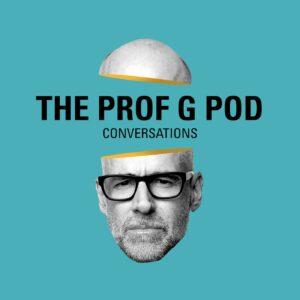Intro
In this episode of “The Lex Fridman Podcast,” host Lex Fridman sits down with Greg Lukianoff, a free speech advocate, First Amendment attorney, and President and CEO of Fire, the Foundation for Individual Rights and Expression. They discuss cancel culture, deplatforming, censorship, and the importance of free speech.
Main Takeaways
Importance of Free Speech
- Freedom of speech is crucial, especially on college campuses, which should be spaces for the exchange of ideas and encourage bold risk-taking.
- Education is the foundation of culture, and focusing on education is important in shaping future generations’ views on free speech.
- Low viewpoint diversity leads to tribal thinking and the acceptance of the idea that there should be no free speech for opponents.
- The First Amendment protects fundamental human rights and the freedom of speech, which applies to the government.
- Free speech law and free speech culture are often confused, and the law is generally a reflection of societal norms.
Cancel Culture and Deplatforming
- Cancel culture refers to campaigns to get people fired, expelled, or de-platformed for speech that would normally be protected by the First Amendment.
- Cancel culture is cruel, anti-intellectual, and won’t lead to truth.
- Attempts to get professors fired or punished are often led by administrators, followed by students and fellow professors.
- Hyperbureaucratization is a big problem in higher education and cutting down on administration may help address cancel culture on campuses.
- Cancel culture played a big role in people losing faith in expertise during COVID.
Understanding Cancel Culture
- Cancel culture is part of a larger, lazy rhetorical approach to winning arguments without actually engaging in substantive debate.
- There are rhetorical fortresses used by both the left and right to dismiss arguments without addressing their substance.
- Steel manning, the reverse of straw manning, requires empathy, eloquence, and understanding of the opposing perspective.
- Legacy admissions and the reliance on elite colleges perpetuate social inequality and hinder freedom of speech.
- Cancel culture can cause people to forget why someone was canceled, even if they were right.
Media and Academic Freedom
- Free speech cases that don’t have a political valence should be given more attention by the media.
- Academic freedom has been in crisis since 2017 on campuses, with low viewpoint diversity and a lack of socioeconomic diversity.
- DEI (Diversity, Equity, and Inclusion) policies can limit free speech and discourage dissenting opinions.
- Departments in higher education lack viewpoint diversity, particularly in humanities where some departments have no conservatives.
- Cancel culture and the culture war played a role in the speaker’s depression, highlighting the importance of mental health awareness and support.
Summary
Importance of Free Speech and the Dangers of Cancel Culture
Greg Lukianoff, a free speech advocate, discusses the importance of free speech, particularly on college campuses. He emphasizes that campuses should be spaces for the exchange of ideas and bold risk-taking, rather than conformity. Lukianoff also highlights the dangers of cancel culture, which involves campaigns to de-platform or punish individuals for speech that would normally be protected by the First Amendment. He argues that cancel culture is cruel, anti-intellectual, and ultimately hinders the pursuit of truth.
Understanding Cancel Culture and Rhetorical Tactics
Lukianoff explores the rhetorical tactics used in cancel culture debates. He explains that both the left and right employ rhetorical fortresses to dismiss arguments without addressing their substance. He introduces the concept of steel manning, which involves understanding and representing the opposing perspective eloquently. Lukianoff also discusses the negative impact of cancel culture on academic freedom and the lack of viewpoint diversity in higher education.
Media and Academic Freedom
The media’s role in highlighting free speech cases that lack political valence is emphasized. Lukianoff discusses the crisis of academic freedom on campuses, with low viewpoint diversity and a lack of socioeconomic diversity. He raises concerns about DEI policies limiting free speech and discouraging dissenting opinions. The lack of viewpoint diversity in departments, especially in humanities, is also addressed. Lukianoff shares his personal experience with cancel culture and its impact on mental health, emphasizing the importance of awareness and support.
Conclusion
Greg Lukianoff’s conversation with Lex Fridman sheds light on the dangers of cancel culture, the importance of free speech, and the need for viewpoint diversity in academia. They explore the impact of cancel culture on mental health and the role of media in highlighting free speech cases. The conversation serves as a reminder of the value of open dialogue, empathy, and intellectual humility in fostering a healthy society.
